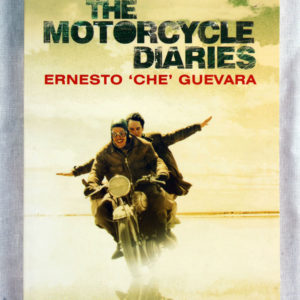I Dream Like You: Stories We Walk Past | Saker Mistri
₨ 632.00
Their dreams were not too different from ours. Each one achieved success—school principal, poet, police constable, chartered accountant and social entrepreneur. But the road was long, the hurdles seemingly unpassable. The real-life narratives of the twenty-five young writers in this book reveal the bridges they built between the slum communities they were born in and the world outside.
These are stories we walk past, faces we don’t stop to notice. These voices show a maturity beyond their years, reminding us that honesty, courage, success and compassion are in each one of us if we are given the right opportunities to develop them.
Their dreams were not too different from ours. Each one achieved success—school principal, poet, police constable, chartered accountant and social entrepreneur. But the road was long, the hurdles seemingly unpassable. The real-life narratives of the twenty-five young writers in this book reveal the bridges they built between the slum communities they were born in and the world outside.
These are stories we walk past, faces we don’t stop to notice. These voices show a maturity beyond their years, reminding us that honesty, courage, success and compassion are in each one of us if we are given the right opportunities to develop them.
Related products
The Motorcycle Diaries is a story which revolves around 2 men who embark on a road journey on a 1939 Norton 500cc cylinder motorcycle from Buenos Aires. They are out to discover and explore South America. This book had been written 8 years prior to the Cuban Revolution. The person who wrote the memoirs of this journey was one of those 2 bikers, Ernesto Guevara. He focused on the injustices that were prevalent at that time in South America.
Arrow of God is a 1964 novel by Chinua Achebe, his third. It followed his book Things Fall Apart. These two works, along with the third book, No Longer at Ease, are sometimes called The African Trilogy, as they share similar settings and themes. The novel centers on Ezeulu, the chief priest of several Igbo villages in Colonial Nigeria, who confronts colonial powers and Christian missionaries in the 1920s. The novel was published as part of the influential Heinemann African Writers Series.
The phrase “Arrow of God” is drawn from an Igbo proverb in which a person, or sometimes an event, is said to represent the will of God. Arrow of God won the first ever Jock Campbell/New Statesman Prize for African writing.
The Ambedkar Cartoons, 1932–1956
Unnamati Syama Sundar with a Foreword by Suraj Yengde
This history like no other asks you to consider what you are laughing at.
In 2012, the inclusion of a 1949 cartoon by Shankar showing Jawaharlal Nehru whipping a snail-borne B.R. Ambedkar in a school textbook, evoked dalit protest, and a savarna counter on the grounds of artistic freedom. Scholar and cartoonist Unnamati Syama Sundar then undertook an archival survey of cartoons on Ambedkar in the English language press. The result, a collection of over a hundred cartoons from India’s leading publications, drawn by Shankar, Enver Ahmed and R.K. Laxman, among others, lays bare the perverse and thoughtless hostility Ambedkar often contended with. The incisional commentary woven around each cartoon offers a veritable biography of a man historically wronged.
Unnamati Syama Sundar grew up in Vijayawada on a diet of Calvin and Hobbes, Dennis the Menace, Chacha Chaudhary and Amar Chitra Katha. He is doing his doctoral research at Jawaharlal Nehru University on the art featured in Chandamama, the popular Telugu children’s magazine founded in 1947. Syama Sundar is well-known for his Ambedkarite cartoons in the non-savarna social media world. His work is featured regularly on the website roundtableindia.co.in.
Jotiba Phule’s Fight for Liberty
Story: Srividya Natarajan
Art: Aparajita Ninan
In 1873, Jotirao Govindrao Phule wrote Gulamgiri (Slavery), a scathing, witty attack on the Vedas as idle fantasies of the brahman mind which enslaved the shudras and atishudras. A hundred and forty years hence, Srividya Natarajan and Aparajita Ninan breathe fresh life into Phule’s graphic imagination, weaving in the story of Savitribai, Jotiba’s partner in his struggles.
In today’s climate of intolerance, here’s a manifesto of resistance—Phule setting the dynamite of thought to the scriptures and ideas Hindus hold dear.






Reviews
There are no reviews yet.